I wonder about the potential of EVs, massive uptake of EVs would have a huge benefit to our air quality, health benefits, savings in healthcare costs etc Retrofitting carparks with solar powered charging points. Train stations, shopping centres etc. Massive construction boom coming out of covid.
Navigation
Install the app
How to install the app on iOS
Follow along with the video below to see how to install our site as a web app on your home screen.
Note: This feature may not be available in some browsers.
More options
You are using an out of date browser. It may not display this or other websites correctly.
You should upgrade or use an alternative browser.
You should upgrade or use an alternative browser.
Australia's policy on climate change is completely inconsequential
- Thread starter Frank Bunn
- Start date
- Tagged users None
I wonder about the potential of EVs, massive uptake of EVs would have a huge benefit to our air quality, health benefits, savings in healthcare costs etc Retrofitting carparks with solar powered charging points. Train stations, shopping centres etc. Massive construction boom coming out of covid.
Sure thing Nostradamus.
Everyone will have cash to buy a new EV that costs twice as much as a new little Hyundai.
The EU pushed manufacturers towards diesel vehicles to reduce CO2 emissions. But it had the effect of massively increasing toxic particulate emissions.
Diesel was a niche market in Europe until the mid-1990s, making up less than 10% of the car fleet. Diesels produce 15% less CO2 than petrol, but emit four times more nitrogen dioxide pollution (NO2) and 22 times more particulates - the tiny particles that penetrate the lungs, brain and heart.The subsequent EC 1998 Acea agreement with all European car makers was backed by then EU transport commissioner Neil Kinnock and UK environment secretary John Prescott. It committed passenger car-makers to reduce CO2 emissions by 25% over 10 years.“It was practically an order to switch to diesel. The European car fleet was transformed from being almost entirely petrol to predominantly diesel. Britain, along with Germany, France and Italy, offered subsidies and sweeteners to persuade car makers and the public to buy diesel,” said Simon Birkett, director of the Clean Air London group.
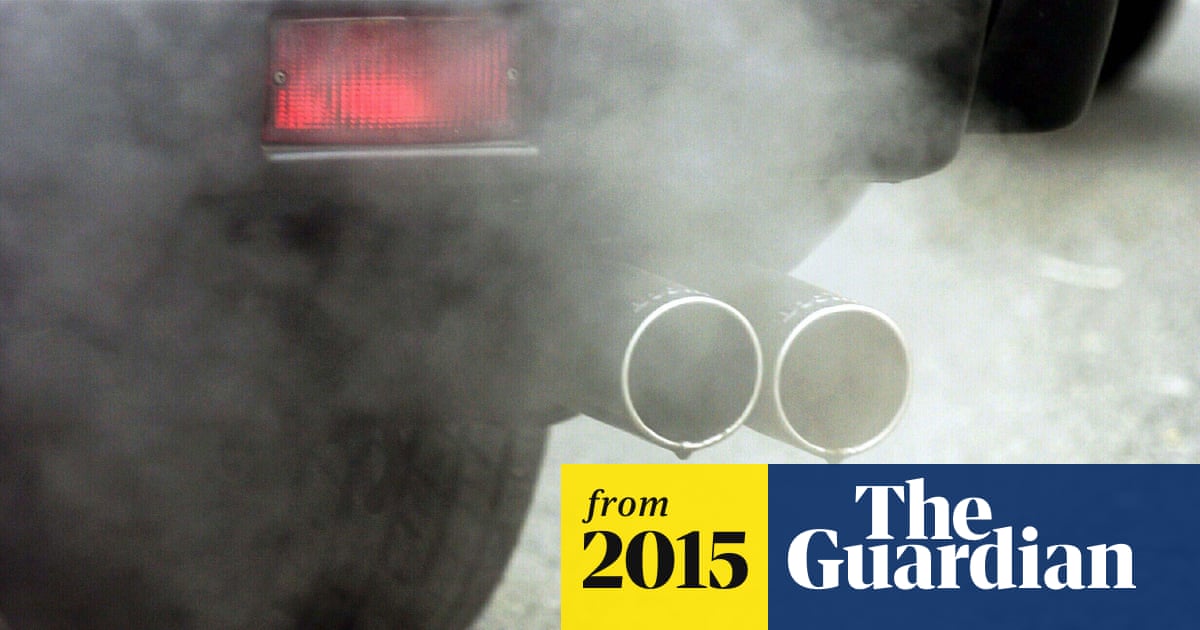
The rise of diesel in Europe: the impact on health and pollution
In a bid to reduce CO2 emissions in the 90s, Europe backed a major switch from petrol to diesel cars but the result was a rise in deadly air pollutionwww.theguardian.com
Diesel has been growing in market share for years in Europe.
CO2? Try price.
Diesel passenger car engines were only developed since the late 1960's.
Pugeot, and Volkswagon, then Mercedes sold them successfully in the 1970's.
The share increased as engine development improved, Turbo Chargers and Electronic direct injection allowing them to compete with Petrol Engines for performance.
Is 17% market share in 1992 a Niche?
Most car makers are still not able to design and produce an engine of this type. They took off in Europe because the manufacturer's Audi, Volkswagon, Pugeot , Mercedes have big market share there.
They are better for CO2 but worse for NOx which has immediate health consequences but is not a greenhouse gas. ( Lithium batteries have other environmental concerns too ).
The introduction of direct injected Petrol Engines has provided a decent alternative.
Remember how much the first plasma TVs costed? 15-20k. With mass uptake, they are now a 10th of that cost.Sure thing Nostradamus.
Everyone will have cash to buy a new EV that costs twice as much as a new little Hyundai.
Remember how much the first plasma TVs costed? 15-20k. With mass uptake, they are now a 10th of that cost.
Now we don't have Plasma TV's. It would probably cost a fortune to get one.
Imagine if you'd invested in Plasma technology.
Self driving cars by 2020 remember.
There are some viable electric cars , but they will be a slow growing niche.
Most people want to charge them at night, so Solar is tricky, unless every workplace provides parking with Solar Charging.
First thing we need is low CO2 Electricity so that we have something to charge solar cars with.
Adding solar farms to the grid won't help much with night time car charging.
Nation building project developing large scale renewable networks post covid FTW.Now we don't have Plasma TV's. It would probably cost a fortune to get one.
Imagine if you'd invested in Plasma technology.
Self driving cars by 2020 remember.
There are some viable electric cars , but they will be a slow growing niche.
Most people want to charge them at night, so Solar is tricky, unless every workplace provides parking with Solar Charging.
First thing we need is low CO2 Electricity so that we have something to charge solar cars with.
Adding solar farms to the grid won't help much with night time car charging.
Get writing to your federal MPs people.
- Aug 21, 2016
- 15,739
- 24,894
- AFL Club
- Geelong
- Other Teams
- Oldham
- Thread starter
- #407
Nation building project developing large scale renewable networks post covid FTW.
Get writing to your federal MPs people.
Repetition doesn't make your assertions any less stupid.
Being stuck in the 1980s makes your ilk more and more irrelevant:Repetition doesn't make your assertions any less stupid.
Investors urge governments to go green for coronavirus recovery
Major investors are urging governments to seize green opportunities to drive growth and avoid coronavirus recovery plans that exacerbate climate change.
Dr Birol said "only renewables are holding up during the previously unheard-of slump" in global consumption of electricity, oil and gas. Clean energy "can create jobs, make economies more competitive and steer the world towards a more resilient and cleaner energy future"
Being stuck in the 1980s makes your ilk more and more irrelevant:
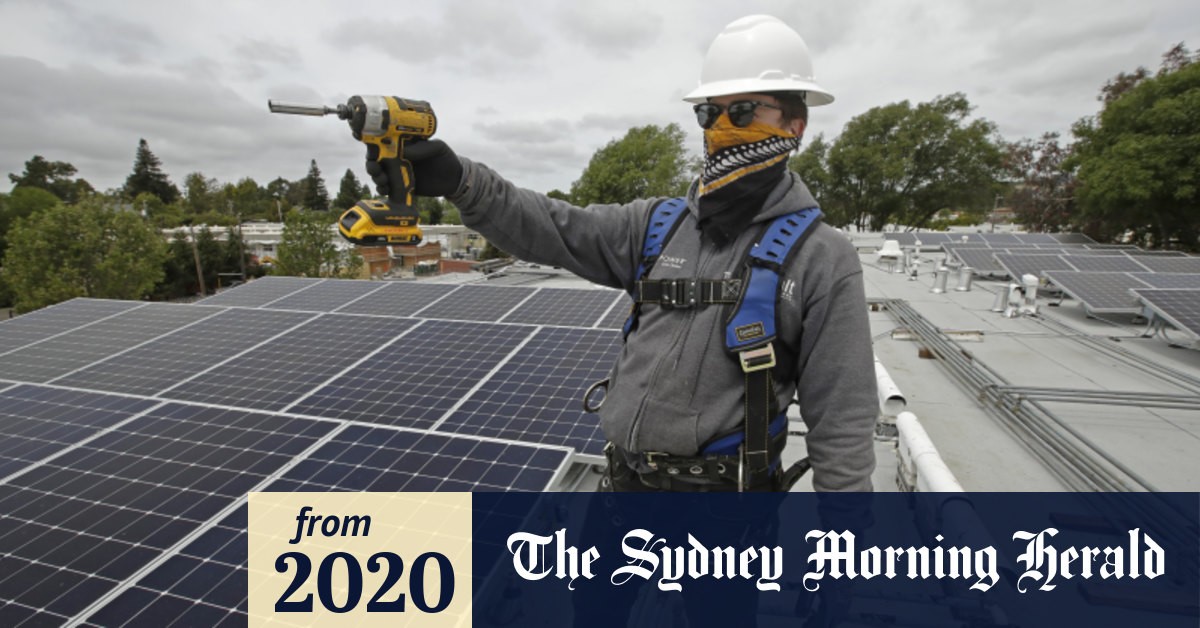
Investors urge governments to go green for coronavirus recovery
Major investors are urging governments to seize green opportunities to drive growth and avoid coronavirus recovery plans that exacerbate climate change.www.smh.com.au
Dr Birol said "only renewables are holding up during the previously unheard-of slump" in global consumption of electricity, oil and gas. Clean energy "can create jobs, make economies more competitive and steer the world towards a more resilient and cleaner energy future"
That's talking about investment.
Yes renewable are clearly safer investments.
There will be plenty of breezy sunny days when the assets sit there generating returns on your investment.
You don't really care if there is no power on that dark still night.
There is very little motivation in building an expensive facility that can provide energy whenever its needed, but will only deliver a return on your investment when the solar and wind can't be used.
Nevertheless we need something.
New Zealand had some fairly crude gas turbines generating their power.
They were essentially the engine off a DC9 converted for power generation.
They retired them due to greenhouse emissions concerns.
If they really had concerns they should have destroyed them, Australians bought them second hand and are happily running them.
As the component of wind and solar energy increases, the shortage in the cold still nights will get worse.
In general i don't think people understand how electricity can't be easily stored.
Without large scale storage.
How many Tesla Batteries would we need to get us through a winter night , if we wanted to replace Loy Yang Power Station.
We would need 200 000 the size of the South Australian unit. I make the cost of that around 13 TRILLION dollars. If people start buying these big batteries , they won't get cheaper, they'll become less of a speciality and more of a commodity based on the price of the Lithium they need.
Snowy 2, with people bitching because its budgeted at a couple of Billion, and might blow out to 5, "might" allow one of Loy Yang's 6 units to be shut down overnight.
A nuclear power plant the size of Loy Yang would probably cost 30 Billion dollars, how would you pay for that, if you only make money when the renewable's can't be used.
But yeah its all easy....just build more solar dude....
Anyone have a real solution?
Microgrids to begin.That's talking about investment.
Yes renewable are clearly safer investments.
There will be plenty of breezy sunny days when the assets sit there generating returns on your investment.
You don't really care if there is no power on that dark still night.
There is very little motivation in building an expensive facility that can provide energy whenever its needed, but will only deliver a return on your investment when the solar and wind can't be used.
Nevertheless we need something.
New Zealand had some fairly crude gas turbines generating their power.
They were essentially the engine off a DC9 converted for power generation.
They retired them due to greenhouse emissions concerns.
If they really had concerns they should have destroyed them, Australians bought them second hand and are happily running them.
As the component of wind and solar energy increases, the shortage in the cold still nights will get worse.
In general i don't think people understand how electricity can't be easily stored.
Without large scale storage.
How many Tesla Batteries would we need to get us through a winter night , if we wanted to replace Loy Yang Power Station.
We would need 200 000 the size of the South Australian unit. I make the cost of that around 13 TRILLION dollars. If people start buying these big batteries , they won't get cheaper, they'll become less of a speciality and more of a commodity based on the price of the Lithium they need.
Snowy 2, with people bitching because its budgeted at a couple of Billion, and might blow out to 5, "might" allow one of Loy Yang's 6 units to be shut down overnight.
A nuclear power plant the size of Loy Yang would probably cost 30 Billion dollars, how would you pay for that, if you only make money when the renewable's can't be used.
But yeah its all easy....just build more solar dude....
Anyone have a real solution?
Access to residential batteries needs to be simpler.
Thermal storage needs developing.
Fossil fuels won't be phased out entirely, but most of those that stay need to be paired with CCS.
Wind and solar aren't the only form of renewables that need to be deployed either.
It's all there, just needs a forward thinking government. Although business will probably drive it in the absence of our federal leadership in this area.
HardcoreGeelongFan
Club Legend
- Dec 31, 2019
- 1,279
- 903
- AFL Club
- Geelong
- Other Teams
- St Kilda
- Banned
- #411
Per capita is bullshit we need to declare war on India now before the planet is completely destroyed.
Heck just nuke their powerplants and coalmines from our office chairs if we have to
Heck just nuke their powerplants and coalmines from our office chairs if we have to
- Aug 21, 2016
- 15,739
- 24,894
- AFL Club
- Geelong
- Other Teams
- Oldham
- Thread starter
- #412
Being stuck in the 1980s makes your ilk more and more irrelevant:

Investors urge governments to go green for coronavirus recovery
Major investors are urging governments to seize green opportunities to drive growth and avoid coronavirus recovery plans that exacerbate climate change.www.smh.com.au
Dr Birol said "only renewables are holding up during the previously unheard-of slump" in global consumption of electricity, oil and gas. Clean energy "can create jobs, make economies more competitive and steer the world towards a more resilient and cleaner energy future"
Yep, Big Money has moved out of oil into renewables. Just needs a few more useful idiots to get on board for them to ride the gravy train.
Would be good if the gravy train benefited more people this time.
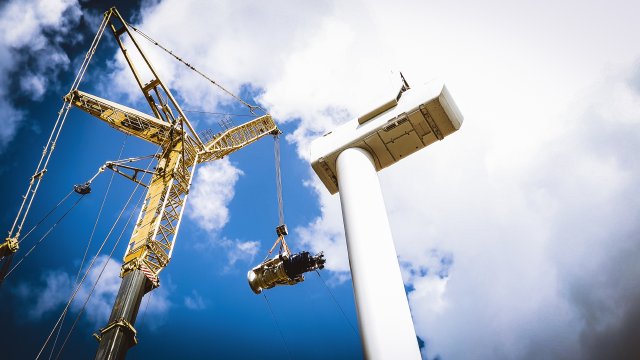
 www.lecho.be
www.lecho.be
"They notably base these recommendations on the analysis of fiscal stimulus plans launched during the 2009 global financial crisis , which showed that the minority of measures oriented towards "green" policies (63 out of 196 plans studied) have proven to be economically more effective than traditional fiscal stimuli."
Pourquoi une relance "verte" serait économiquement plus efficace
Une enquête auprès de 231 fonctionnaires des finances, banquiers centraux et experts conclut que les mesures de relance qui serviront aussi à combattre le réchauffement seront économiquement les plus efficaces.
"They notably base these recommendations on the analysis of fiscal stimulus plans launched during the 2009 global financial crisis , which showed that the minority of measures oriented towards "green" policies (63 out of 196 plans studied) have proven to be economically more effective than traditional fiscal stimuli."
You can't even find a paper written in English to support your assertion?Would be good if the gravy train benefited more people this time.

Pourquoi une relance "verte" serait économiquement plus efficace
Une enquête auprès de 231 fonctionnaires des finances, banquiers centraux et experts conclut que les mesures de relance qui serviront aussi à combattre le réchauffement seront économiquement les plus efficaces.www.lecho.be
"They notably base these recommendations on the analysis of fiscal stimulus plans launched during the 2009 global financial crisis , which showed that the minority of measures oriented towards "green" policies (63 out of 196 plans studied) have proven to be economically more effective than traditional fiscal stimuli."
Desperate times, desperate measures, I suppose...
Per capita is bullshit we need to declare war on India now before the planet is completely destroyed.
Heck just nuke their powerplants and coalmines from our office chairs if we have to
They have nukes, we don't . THey win.
C'mon Fadge, I know there's no point asking you to read an article from the NY Times.You can't even find a paper written in English to support your assertion?
Desperate times, desperate measures, I suppose...
You know, Chrome can translate the page for you.
You got a better suggestion for economic recovery?
Microgrids to begin.
Access to residential batteries needs to be simpler.
Thermal storage needs developing.
Fossil fuels won't be phased out entirely, but most of those that stay need to be paired with CCS.
Wind and solar aren't the only form of renewables that need to be deployed either.
It's all there, just needs a forward thinking government. Although business will probably drive it in the absence of our federal leadership in this area.
I think you need to explain how micro grids will address the issues i discussed. I'm talking power to the masses.
If you are not generating enough electricity, a micro grid won't stop some people having outages , it will only help choose who.
Access to residential batteries is fairly straight forward. If we need 13 trillion worth of large scale battery, you can probably triple that in small scale consumer prices.
Yes thermal storage would be good. Once its "invented" we could utilise it, but it would be foolish to consider undeveloped concepts as part of a current energy policy. When Yallourn coal station is ageing, we don't just sit back and say....bla blah needs to be developed.
Carbon capture has a long way to go, like Thermal storage, its not ready yet.
If we had it the price of the Fossil fuel power station would be higher, and as i suggested above, who is going to make that investment, when everyone wants to use it as little as possible.
Wind , Solar, and..... you're going to commercialise something that will work on a large scale?
The current Yallourn Power Station was built around a decade after Hazelwood was completed. Its been a couple of years now, and we aren't planning a replacement for either of them.
To announce a new gas or coal power station would be political suicide, the the politicians are sitting on their arses hoping for the best.
Yep, we can't be sitting on our asses. I wish we had innovators like this:I think you need to explain how micro grids will address the issues i discussed. I'm talking power to the masses.
If you are not generating enough electricity, a micro grid won't stop some people having outages , it will only help choose who.
Access to residential batteries is fairly straight forward. If we need 13 trillion worth of large scale battery, you can probably triple that in small scale consumer prices.
Yes thermal storage would be good. Once its "invented" we could utilise it, but it would be foolish to consider undeveloped concepts as part of a current energy policy. When Yallourn coal station is ageing, we don't just sit back and say....bla blah needs to be developed.
Carbon capture has a long way to go, like Thermal storage, its not ready yet.
If we had it the price of the Fossil fuel power station would be higher, and as i suggested above, who is going to make that investment, when everyone wants to use it as little as possible.
Wind , Solar, and..... you're going to commercialise something that will work on a large scale?
The current Yallourn Power Station was built around a decade after Hazelwood was completed. Its been a couple of years now, and we aren't planning a replacement for either of them.
To announce a new gas or coal power station would be political suicide, the the politicians are sitting on their arses hoping for the best.
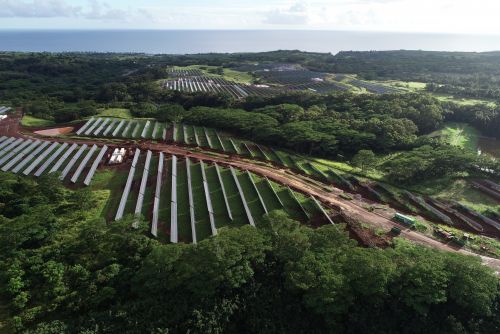
AES Completes Record-Breaking Solar and Battery Plant on Kauai
It makes solar power available at night, bolstering Hawaii’s renewable grid ambitions.
They'll be scaled up from this size in coming years, globally.
from your link...."Yep, we can't be sitting on our asses. I wish we had innovators like this:

AES Completes Record-Breaking Solar and Battery Plant on Kauai
It makes solar power available at night, bolstering Hawaii’s renewable grid ambitions.www.greentechmedia.com
They'll be scaled up from this size in coming years, globally.
Lawai can crank a full output of 20 megawatts for five hours. With 100 megawatt-hours of stored energy, the battery can also operate more like a baseload plant, delivering a lower amount of power for more hours through the night until the sun comes back up. AES expects to offset 3.7 million gallons of diesel each year by dispatching more cost-effectively than the fossil-fueled incumbents. "
One unit of Loy Yang power Station is 1000 megawatts.
Snowy 2 is more innovative than "buying " batteries from a battery maker. ( Obviously they don't have the choice of Hydro in Hawaii, maybe Volcano power is the go there ).
So there is still a hell of a lot of scaling to do. Once its scaled we can use it. Waiting for it is akin to sitting on our arses doing nothing.
My stance is we need to make some sort of plan for the immediate future. Some large , efficient , closed cycle gas plants might be the best option.
Not sure how these would get funded though.
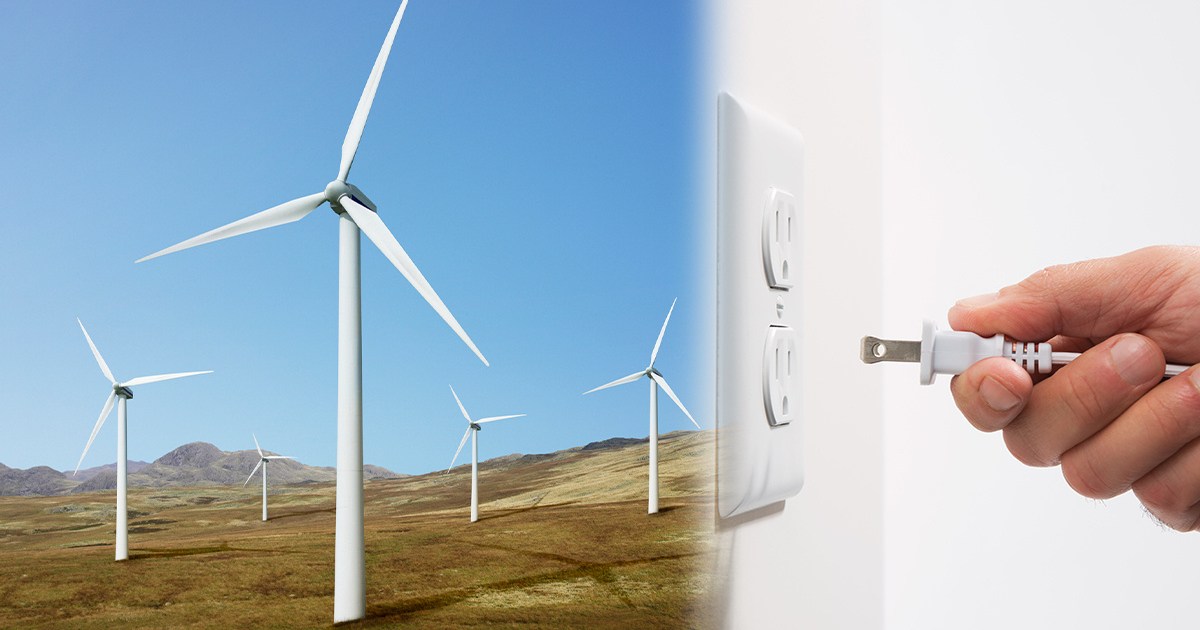
Reimagining our electricity grid could spark a renewable energy boom
Australia's grid has potential to produce three quarters of its supply from renewable energy within five years, but only if reforms are enacted swiftly.
“There will be an economic cost of not acting,” Ms Zibelman said.
“[Our] study makes it clear that today’s operating approaches and market frameworks are becoming less effective as the NEM continues its transformation to world-leading levels of renewable generation.”
So do we attempt to rebuild manufacturing in Australia now? Or shall we hope tourism and education bounce back.
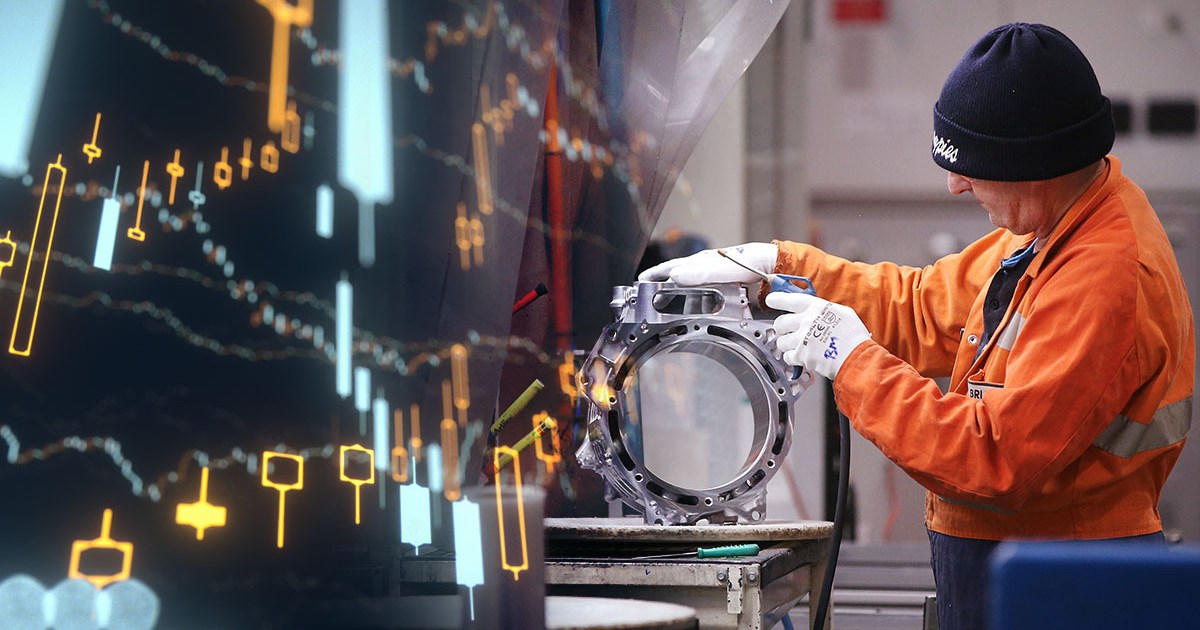
 thenewdaily.com.au
thenewdaily.com.au

How Australia can build a world-class manufacturing industry
Prime Minister Scott Morrison intends to revitalise Australia’s ailing manufacturing industry in a bid to kick-start the nation’s post-coronavirus economy.
Elroo
Premiership Player
- Jul 2, 2014
- 3,994
- 6,808
- AFL Club
- North Melbourne
Tesla Powerwall 2 fitted a week ago along with an extra 1.3kw of solar panels taking our system up to 6.7kw in total. I've been monitoring the system via the APP and even in overcast and almost winter conditions, we are averaging about 85-90% self-sufficient per day in regards to our power. In summer we should be 100% self-sufficient and exporting power to the grid.I wonder about the potential of EVs, massive uptake of EVs would have a huge benefit to our air quality, health benefits, savings in healthcare costs etc Retrofitting carparks with solar powered charging points. Train stations, shopping centres etc. Massive construction boom coming out of covid.


- Apr 18, 2005
- 30,985
- 26,723
- AFL Club
- Melbourne
WrongAs a thought experiment let's make an assumption
Anthropogenic CO2 is causing dangerous warming to the planet.
There's other threads debating this topic but let's go with it for the sake of argument.
The goal of the Paris agreement is to keep global temperature rises this century to well below 2 degrees Celsius above pre-industrial levels. This is to be achieved by each country implementing policies to reduce or mitigate CO2 emissions.
The reality.
The two countries with the largest anthropogenic CO2 emissions, China and USA, are effectively not signatories to the Paris Agreement. China's emissions grew by 80% between 2005 and 2018, and are expected to grow for at the least the next decade.
Most countries that are signatories will fail to meet their targets. Eg. India, which is the 3rd biggest emitter and will soon be the 2nd biggest. India's anthropogenic emissions grew by 76% between 2005 and 2017, and are expected to keep growing. India's policy was to create a cumulative carbon sink of 2.5-3 billion tonnes of carbon dioxide equivalent by 2030 by forest cover expansion. It is a long way behind on this plan and will probably never fulfil it.
Under the agreement, countries that are signatories can set their own emissions reduction targets. Sometimes this can mean their anthropogenic emissions go up. Eg. Russia which has the 4th highest emissions. Their target is based on 1990 emission levels. However, the collapse of the Soviet economy led to Russia's 2017 emissions being 32 per cent lower than in 1990. Thus it can actually 'pollute' more and still meet its current Paris agreement goals.
Other rich countries that are signatories will meet their targets by buying carbon credits from poorer countries. Such schemes are heavily rorted.
Given that the four biggest anthropogenic emitters of CO2 (currently comprising about 65% of emissions and will grow to possibly 75%) will not be implementing policies to reduce their CO2 emissions, Australia's policy on climate change is completely inconsequential to the world's climate and hence our climate. Our policies should reflect this reality. We should be focused on jobs and reliable, cheap energy. Arguments attempting to link our climate change policy to increased risk of bush fires are nonsense.
Wrong
Wrong
The entire premise of this OP which has stimulated debate is utterly and totally wrong.
‘Let’s make the ASSUMPTION that anthropogenic emissions are warming the planet?’ It’s not an assumption, it’s a FACT.
- Apr 18, 2005
- 30,985
- 26,723
- AFL Club
- Melbourne
Renewable energy production should’ve been phased in years ago, the Abbott government essentially killed that concept with a recalcitrant and negligent set of policies. Those working in the fossil fuels industry should’ve been given first crack at renewables jobs on top of re skilling and training.Should add, is it worth having many people lose their jobs, putting more families into financial difficulty, in order to 'send a message' that doesn't actually achieve a whole lot in the grand scheme of things, and also would likely not be effective in influencing the big emitters.
Similar threads
- Replies
- 40
- Views
- 2K




